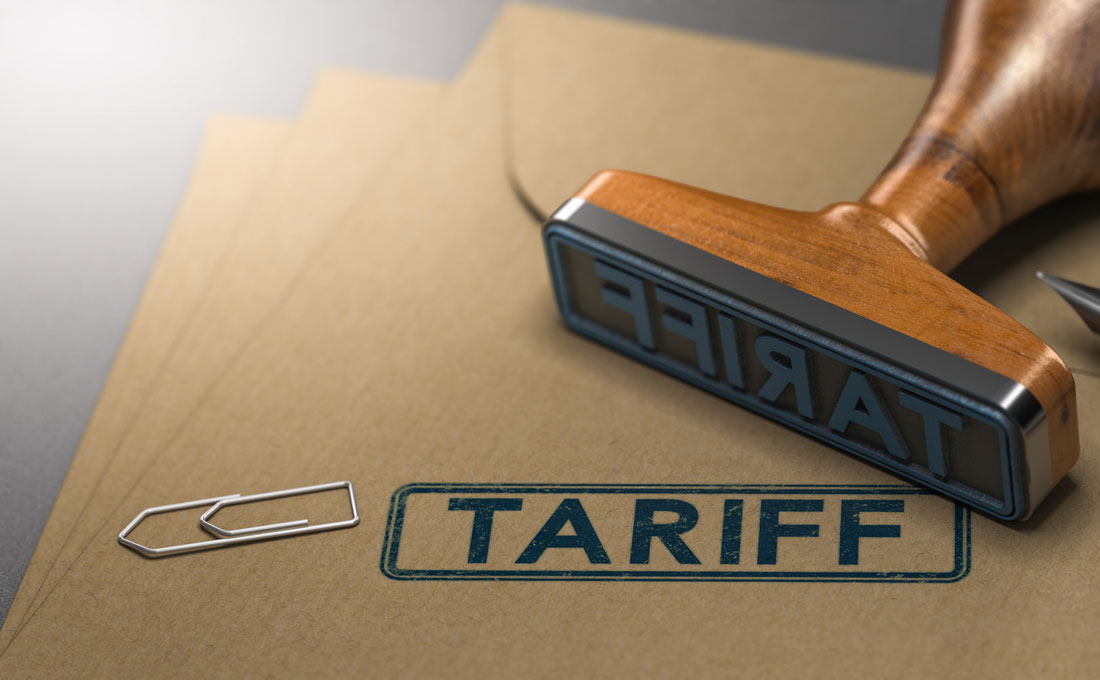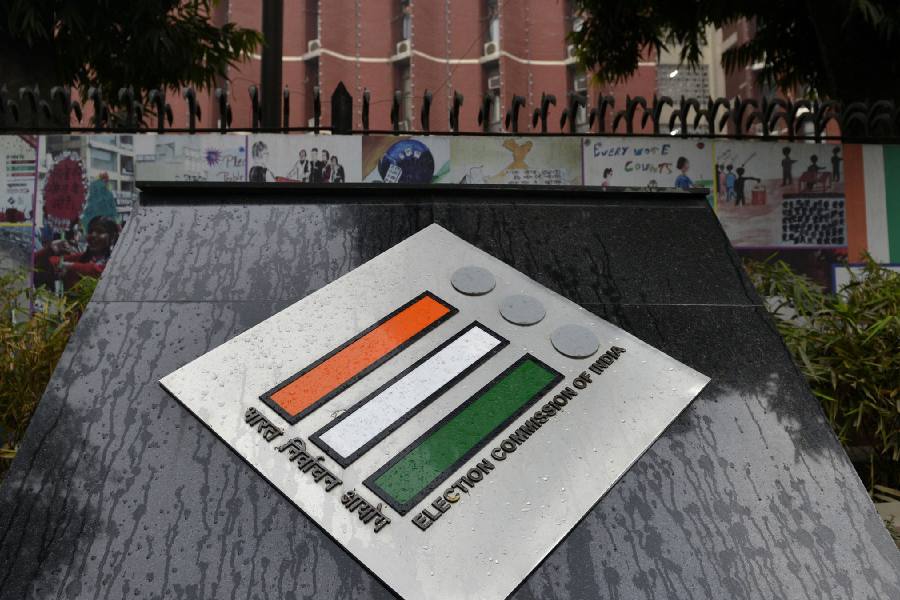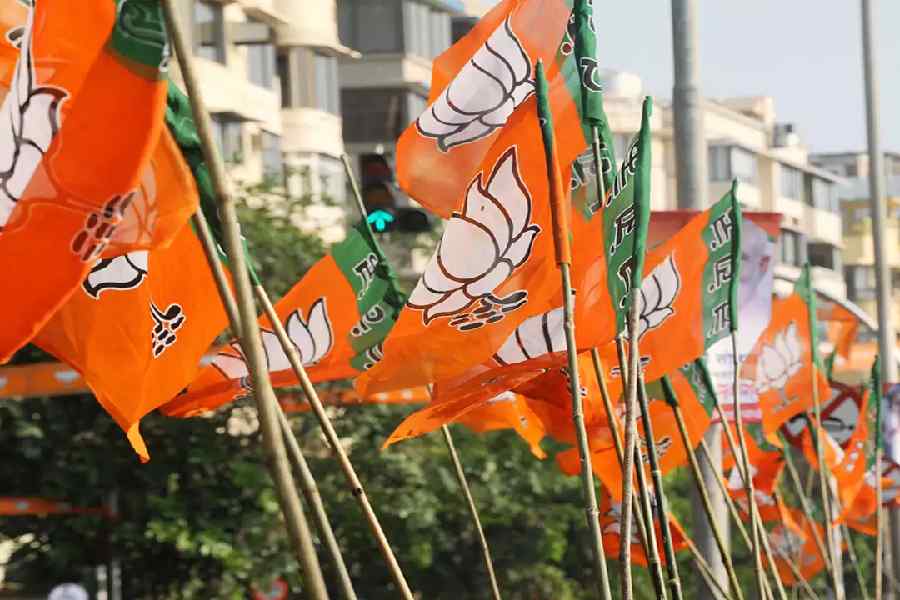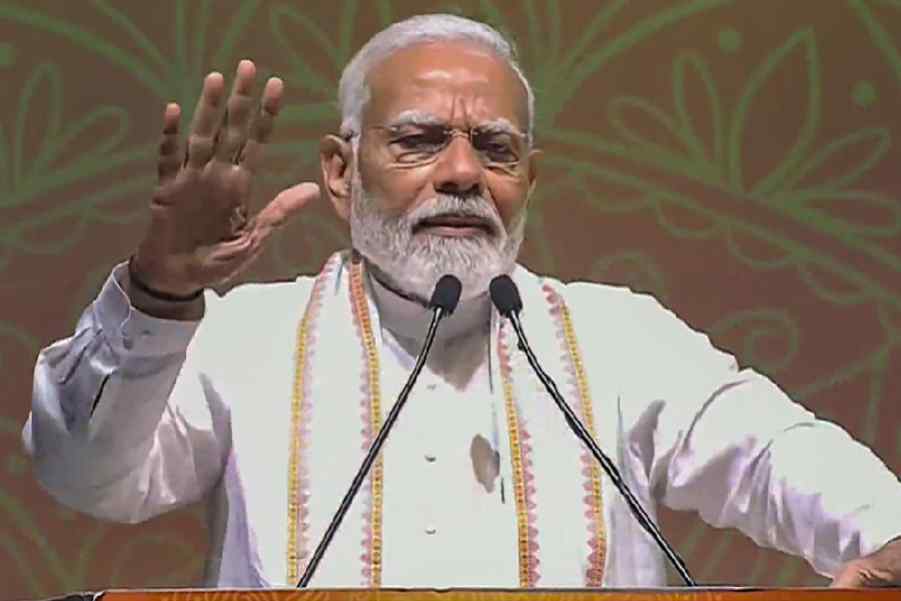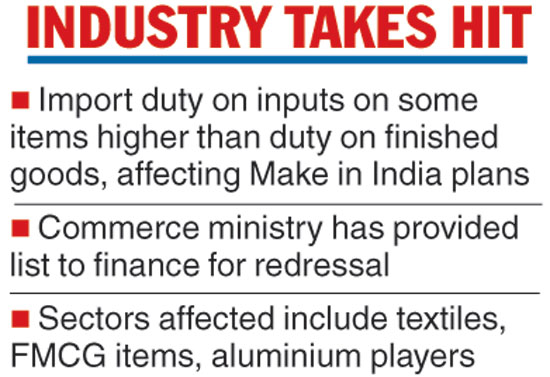
The Telegraph
India’s index of industrial production had plunged to a 17-month low of 0.5 per cent in November on the back of a contraction in the manufacturing sector, hinting at a slowdown, with investment and liquidity issues dogging businesses.
Some of the hot rolled flat sheets and plates of alloy or non-alloy attract basic custom duty of 12.50 per cent, whereas the import of capital goods attracts basic custom duty of 7.5 per cent.
“This has resulted in inverted duty structure. It has discouraged manufacturing of capital goods in India and has encouraged import of capital goods from overseas,” sources said.
In the FMCG sector, industry said, the duty on open cell to make the panels for LED TVs should be reduced to zero per cent from the present level of 5 per cent as there is no manufacturer of open cells in the country.
Under the free trade agreement with Asean countries, LED TV can be imported at 0 per cent duty and if open cell continues at 5 per cent, it will lead to an inverted duty structure where finished products will be at a lower duty.
The first advance estimate of GDP data released earlier this month showed the country is headed for a slowdown in the second half of the fiscal year ahead of the 2019 Lok Sabha elections due in May.
The interim budget will look to redress the problem of inverted duty structure that makes the duty on intermediate goods higher than the duty on finished items, discouraging local production and leading to imports.
The problem is a result of the free trade agreements with other countries and has hit steel, aluminium, textiles and FMCG sectors among others.
The government would take steps to boost manufacturing and try to rectify any inverted duty structure in the overall interest of the economy, officials said.
The commerce ministry has submitted a list of products to its finance counterpart, where the import duty on inputs is higher than finished goods.
Industry leaders have pointed out to free trade agreements having a negative impact on business as they create an “inverted duty structure”.
Analysts said the government must address issues which are acting as an impediment to manufacturing as this would result in increased investment and job creation.

